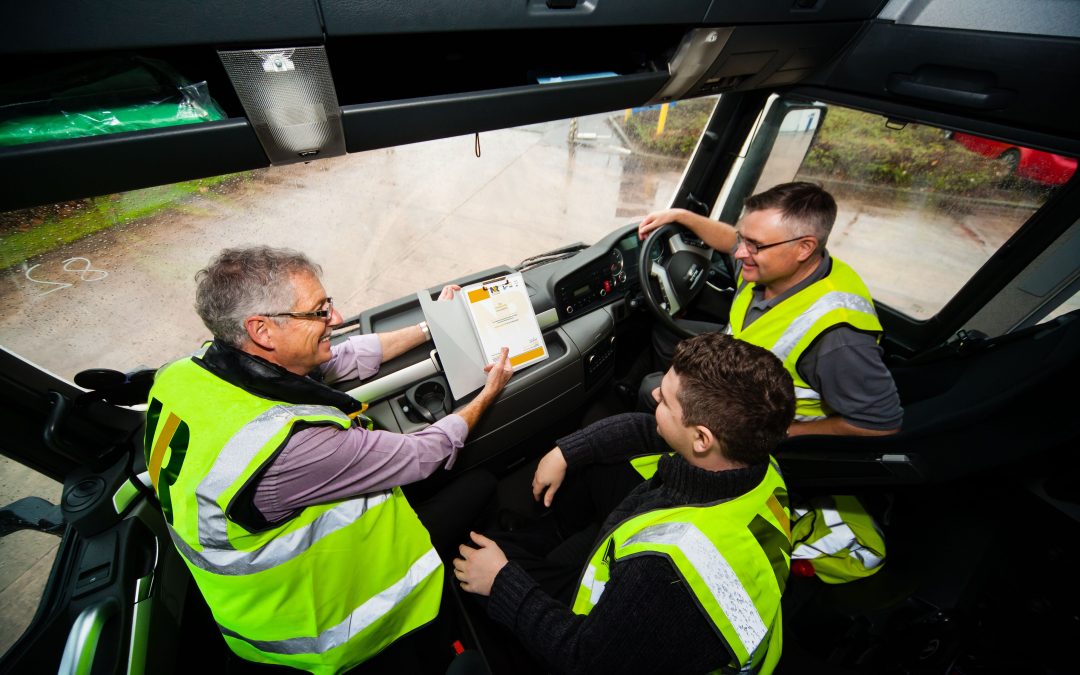
The Department for Transport (DfT) has published a summary of the responses received to its recent call for evidence about potential changes to the driver licensing regime. One aspect of the call sought views on the training, qualification and registration of LGV/HGV and PCV/PSV Instructors. Whether already involved in the NRI or yet to get involved, driver training professionals will be interested to see the strength of industry support for mandatory training and qualification of LGV/HGV and PCV/PSV instructors.
Commenting on the responses, Sarah Brown, NRI Manager said; “With over 1,000 LGV Instructors already on the NRI, this independent evidence of support for the key elements of NRI; a challenging qualification and a public register is good to see. We work closely with DVSA to ensure that NRI continues to meet DVSA standards. As stated in our submission to the call, we’re confident that the current arrangements can be scaled up meet the needs of a mandatory register to serve what we estimate to be 5-6,000 LGV/HGV and PCV/PSV driving Instructors in the UK.”
Introduction of a standardised Instructor training and qualification programme
64% of consultees agreed with the introduction of a standardised instructor training and qualification programme. 14% did not agree and 21% were unsure. Those who agreed were then asked whether any requirement should be a voluntary or mandatory, with 72% of them indicating that there should be a mandatory requirement.
A register of LGV/HGV Instructors
All consultees were asked if any mandatory register of LGV/HGV Instructors should be managed by the Driver and Vehicle Standards Agency (DVSA). 74% agreed that this should be in place, 12% did not agree while 14% of consultees were unsure.
A register for PCV/PSV Instructors
Those who agreed that a mandatory register should be in place were then asked if it should include public service vehicles and/or passenger carrying vehicles (PCVs) and 82% believed it should include PCVs while 88% thought it should include public service vehicles.

Sarah commented; “Prior to the call for evidence, we’d started work with the PCV sector to provide them with a professional qualification and register for their Instructors. We put that work on hold pending the outcome of the call for evidence, but the message here is that we should now move quickly to get that in place.”
Pass rate publication
NRI and DVSA have discussed the value and the practicalities of pass rate publication since NRI was launched in 2019. There are some technical and ethical challenges which have prevented progress in this regard.
Sarah commented; “The call for evidence provides us with further valuable feedback on the demand for publication and the pitfalls in interpreting pass rates as an indication of training quality which we will discuss with DVSA.”
The headline figure is that 55% of consultees agreed with the publication of pass rates achieved by instructors. 20% did not agree and 25% were unsure. Those who agreed or disagreed were asked to provide reasons. From the 745 consultees who provided reasons in support of the publication of pass rates, the main comments received (by frequency of response) were that it would allow informed choice (214), for quality control purposes (206), to ensure the information is in the open (140) and is transparent (131) and that training standards would be improved (114).
On the other hand, there were 301 consultees who did not think that pass rates achieved by Instructors should be published. A main comment was a belief that pass rates would not on their own reflect quality of training provided (138). Other less frequently made comments included it could lead to corruption and falsification of results (42) and that it could be discriminatory or unfair (33).
About the Call for Evidence
The call for evidence opened on 5 August 2022 and ran for 12 weeks, closing on 28 October.
Response was via an online survey was designed by the Department for Transport (DfT) and included 88 questions, which focused on four areas:
- To grant drivers who have a car (category B) licence entitlement additional entitlement to a LGV/HGV (category C1) licence.
- To grant drivers who have a car (category B) licence entitlement to a minibus (category D1) licence.
- To create a formalised instructor programme or training and how this could be made compulsory, to create a formal register of instructors and to publish pass rates for Instructors.
- Other minor driving licence changes.
The report published on 6th June provides a summary of the responses received. It covers the four areas above and includes verbatim comments and evidence received from those responding as individuals and those responding on behalf of a range of organisations, including schools, local authorities and community transport organisations. Download the report here: https://www.gov.uk/government/consultations/driving-licensing-review-call-for-evidence-on-opportunities-for-changes-to-the-driver-licensing-regime
Who responded?
2,061 responses were received, including 1,742 responses from individuals. 319 responses were from representatives of transport companies and organisations such as driver training school and the sector’s trade bodies.
